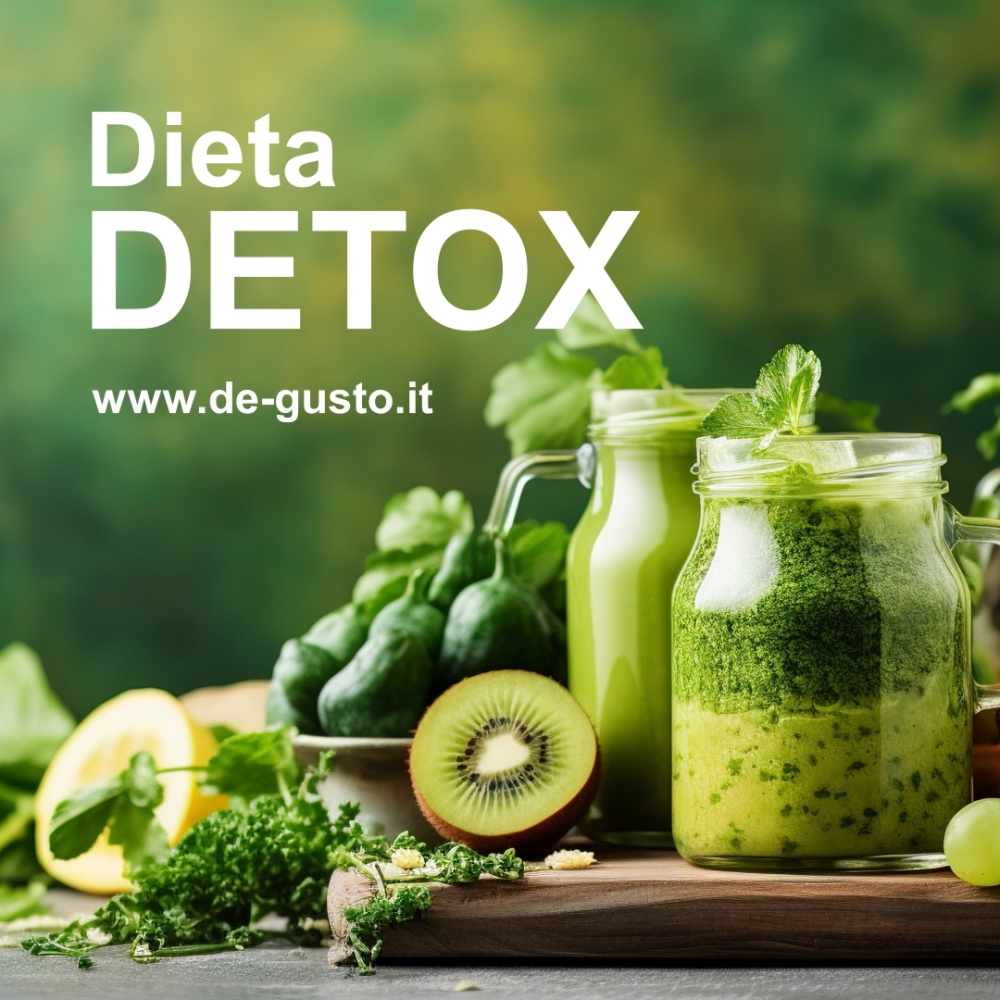Spring has arrived and many people find themselves struggling with a sense of tiredness, heaviness and physical and mental sluggishness. To better cope with the season, it is useful to follow a few days of purification from the toxins and extra kilos accumulated during the cold season. To start this beneficial process, you can follow a 3- or 7-day diet based on detox foods, with the aim of promoting purification and the elimination of excess toxins. Toxins are waste products that accumulate in the body due to an unhealthy diet, drug consumption, stress, cigarette smoking, excessive alcohol and smog. They are normally disposed of by the liver, kidney and intestines, but also through breathing and the skin. However, if they accumulate excessively, you may feel more tired and lack energy, have difficulty digesting with bad breath, have abdominal bloating and intestinal irregularities, have dull skin with rashes, or have difficulty losing weight. The liver performs numerous functions including: it regulates blood sugar, carbohydrate and protein metabolism, enables the digestion of fats, the production of cholesterol and triglycerides and, last but not least, is the key organ in the detoxification process of toxins. When it is challenged, due to an excess of toxins, these are put back into circulation and will be disposed of more slowly. Through nutrition, we can restore the liver's detoxifying capacity so that the entire organism can benefit in terms of general well-being and energy.
Let us now look at the basic rules of the detox diet:
Hydration, essential to facilitate the elimination of toxins. It is important to drink at least 2 litres, including water, herbal teas and infusions. Avoid coffee, soft drinks (carbonated, sugary, but also fruit juices) and alcohol.
Take fibre, in the form of vegetables, fruit and whole grains. Vegetables to be preferred for their diuretic, draining and hepatoprotective properties are asparagus, artichokes, fennel, broccoli and carrots. Other vegetables that should not be missed are celery, rich in fibre useful for cleansing the intestine, and radishes, which, thanks to the abundant presence of vitamin C, reactivate the circulation and promote liver and kidney purification. Fruits to be preferred are kiwis, citrus fruits, strawberries and pineapple, which can counteract water retention. Let's not forget the lemon, which is the detox fruit par excellence for its strong thirst-quenching and purifying properties. Forbid consumption of white, refined flours and simple sugar, and avoid packaged products and baked goods such as pizzas, cakes, etc.
Consume Omega 3, which reduce the accumulation of fat in the liver and have anti-inflammatory properties. At the table we find them mainly in oily fish (cod, hake, sea bass, sea bream, mackerel and sardines), dried fruits, such as almonds and walnuts, and oil seeds, such as chia seeds and flax seeds.
Never skip meals, but have five meals a day divided into breakfast, lunch, dinner and two snacks (mid-morning and mid-afternoon). Avoid salt, sauces and flavourings, which worsen high blood pressure and water retention. For flavouring, prefer spices and herbs.
Combine good physical activity, carried out consistently. It may be appropriate to take a walk a day, of about 30-45 minutes, to further flush out toxins.
Get regular sleep, which is good for the proper functioning of the metabolism and ideal for detoxifying the body. One should sleep about eight hours per night, always trying to go to bed at the same time and never too late.
But when is it most useful to follow a detox diet?
Apart from seasonal changes, it can be useful after the holidays, or after periods of excessive eating and drinking. It is a good habit to follow it periodically, once or twice a year, to encourage the disposal of toxins and regeneration of the body.
As always, before embarking on a course of this kind, it is necessary to consult a professional nutritionist in order to set up a healthy and personalised plan, also because without a correct diet, the detox diet risks having only temporary effects. In addition, it is always inadvisable to lose weight quickly and constantly vary one's body weight.
(Article by Dr Maddalena Della Bianca)





